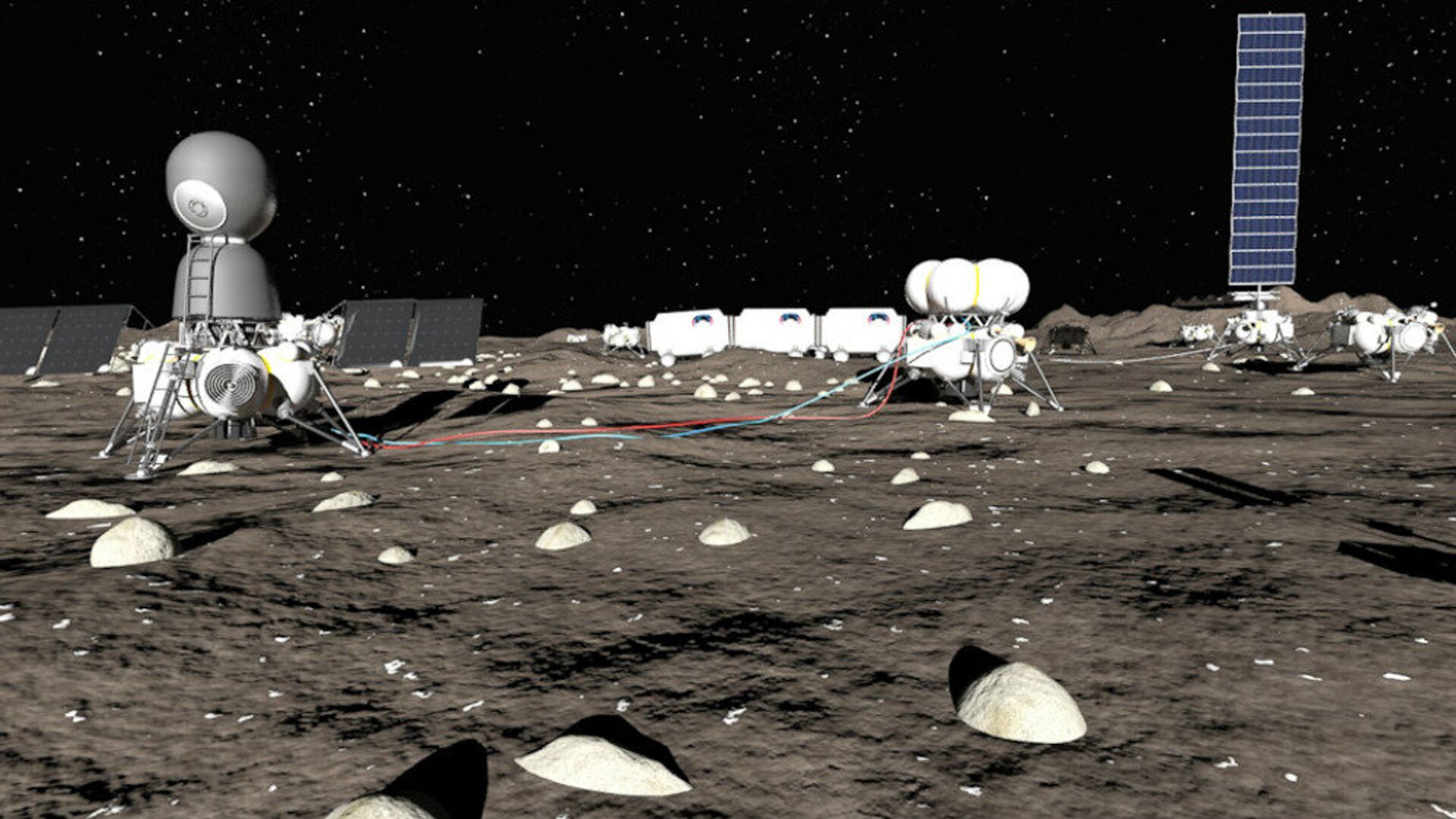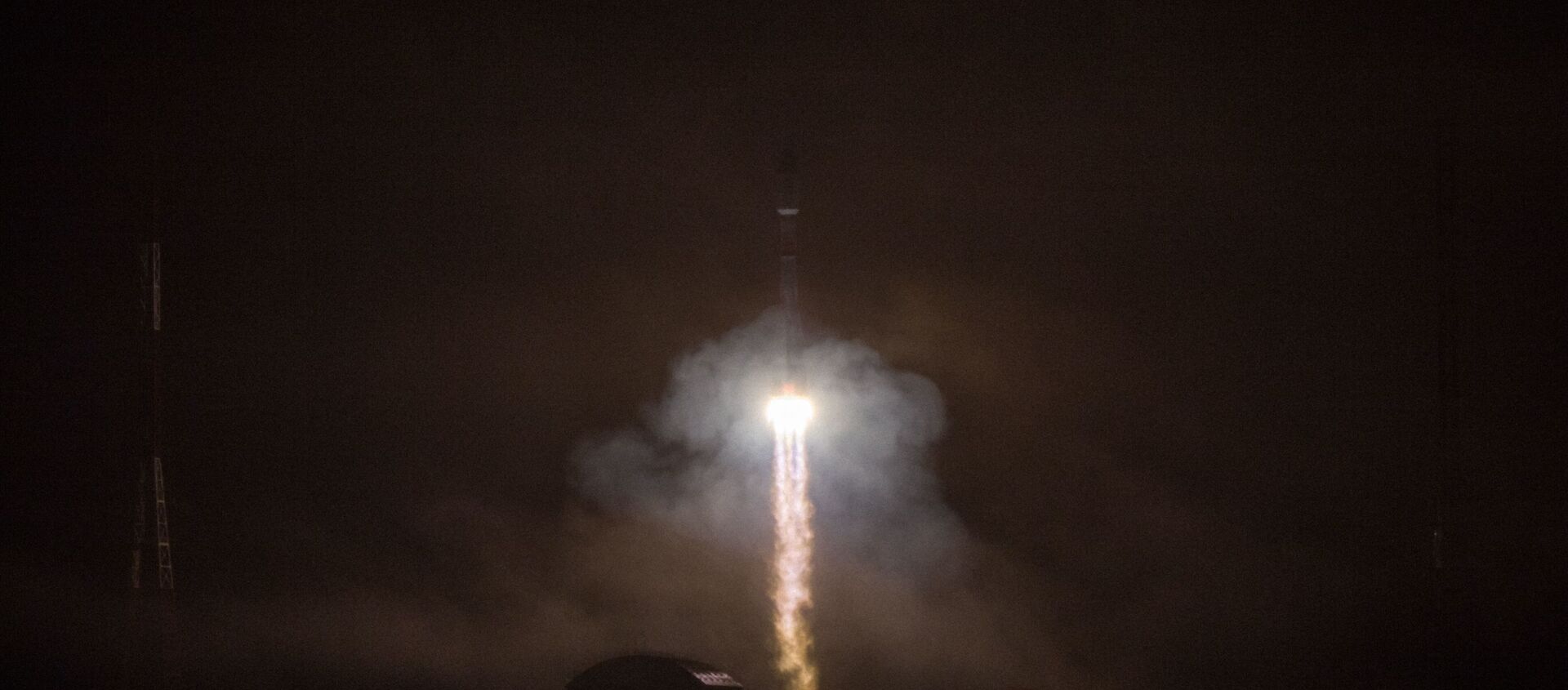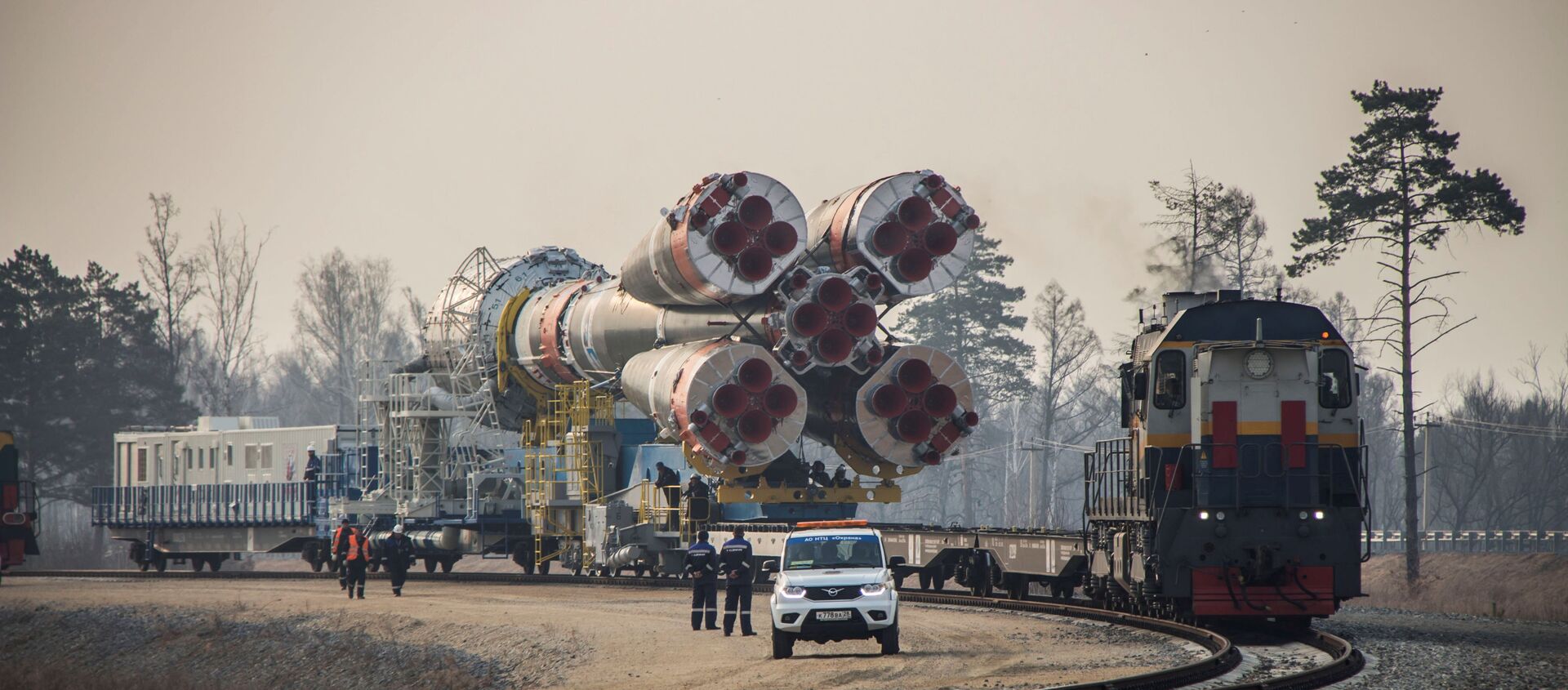German Space Agency Chief Says Will Discuss Moon Base Project With Roscosmos
09:58 GMT 31.08.2021 (Updated: 16:57 GMT 12.04.2023)
Subscribe
COLORADO SPRINGS (Sputnik) - The head of the German Space Agency at DLR, Walther Pelzer, has told Sputnik he plans to discuss the International Lunar Research Station (ILRS) initiative with Roscosmos in an upcoming meeting that he hopes will be attended by its head Dmitry Rogozin.
In March, Russia reaffirmed its lunar exploration ambitions by signing a memorandum on cooperation with China's National Space Administration on the creation of the ILRS.
"I'm going to discuss it [ILRS] with Roscosmos. We already have an appointment as far as I know, and then we can go more into detail but right now we are not so far", Pelzer said.
Pelzer, speaking to Sputnik on the sidelines of the 36th Space Symposium, said he does not know whether Rogozin will be part of the meeting but expressed hope that he will participate.
ESA Director General Josef Aschbacher earlier told Sputnik that European Space Agency (ESA) member states are discussing an offer made by Russia and China about possible participation on the ILRS, but that no decision has yet been reached.
Pelzer refrained from giving any exact policy statements on the matter to maintain a unified cross-agency position.
"We are aware of this offer and as Josef said, he is now in the discussion and coming back with more details of the offer… but we will not come up with separate positions prior to the discussion", Pelzer said.
The ILRS was conceived as a scientific experiment base on the surface of the Moon and its orbit aimed at carrying out multi-disciplinary and multi-objective scientific research activities, including lunar exploration and observation.
In late March, Russian scientists also announced plans to send a capsule with microorganisms to the Moon and leave it for several years to assess the effect of lunar conditions on biological objects.
German Space Agency Chief Says Committed to ISS Amid Talk of Russian Orbital Station
Pelzer noted that they are committed to and focused on the International Space Station (ISS) at the moment.
"Right now we have, we have a clear commitment to ISS. This is what we focus on", Pelzer said on the sidelines of the 36th Space Symposium when asked about a potential Russian orbital station.
At the end of July, Roscosmos' Scientific and Technical Council recommended laying the groundwork for construction of a new national space station "in order to avoid risks related to the technical condition of the Russian section of the ISS, and [due to] the plans to end its use by 2028".
On 30 August, Roscosmos Deputy Director General for International Cooperation Sergei Saveliev told Sputnik that Dmitry Rogozin, the chief of the Russian space agency, is expected to discuss the possibility of extending the operation of the ISS at a meeting with NASA Administrator Bill Nelson in October in the United Arab Emirates (UAE).
Asked whether the possibility of extending the space station's life beyond 2024 will be discussed at the meeting in Dubai, Saveliev said: "Absolutely".
German Space Agency Chief Says Happy Russia Added Nauka Module to ISS
Pelzer also told Sputnik he is glad that Russia has brought the Nauka multipurpose laboratory module to the International Space Station (ISS).
Nauka docked with the ISS on 29 July after 14 years of waiting on Earth and eight days of orbital flight. This is the first Russian module sent to the station in 11 years. The module was originally scheduled to go into orbit in 2007, but the launch was postponed multiple times for various reasons.
"From my point of view and, I'm very happy that Russia brought up this new element", Pelzer said on the sidelines of the 36th Space Symposium.
Three hours after the docking, its engines spontaneously activated, which led to a 45-degree turn of the station. The space station's engines had to be switched on in order to compensate for the change.
Roscosmos Executive Director for Piloted Spaceflights Sergei Krikalev said in early August that a special commission had been formed to establish the causes behind the unscheduled activation of engines by Russia's Nauka multipurpose laboratory module after it docked with the ISS.
New German Government Likely to Support ISS Extension
The new government in Berlin will likely support extending the International Space Station (ISS) to the year 2030, Pelzer told Sputnik.
Germany is set to hold a crucial Bundestag election on 26 September, in effect electing a new chancellor as longtime head of government Angela Merkel is set to step down after 15 years at the helm.
"We will get the new government in a few weeks' time. But I'm positive that they will support this decision to go to 2030 at least", Pelzer said.
NASA Administrator Bill Nelson told Sputnik that he hopes the cooperation between the United States and Russia on the ISS will continue beyond 2030.
When asked whether he expects the ISS to be extended, Nelson said: "Yes. To 2030. And Russia is our partner on the ISS".
German Space Agency Hopes to Foster More Cooperation With Russia
The German Space Agency at DLR is making efforts to boost cooperation with Russia, Pelzer stressed.
"Russia is, from our point of view, a very, very important partner. And this is the reason why I actually try to have even more meetings, not only one with Roscosmos but also with former astronauts", Pelzer said. "I try to get in touch to actually foster our cooperation".
Speaking with Sputnik on the sidelines of the 36th Space Symposium in Colorado Springs in the US, Pelzer also pointed out that the German-Russian monitoring system for animal migration, ICARUS, is an example of successful collaboration.
"When we look, for example, at ICARUS, we are very proud that we jointly set up this project on the ISS. We have few other projects we do together", he explained. "So, from this point of view, I think there's a lot of room [where] we can do more together".
ICARUS was launched in early 2020 as a joint project between the Max Planck Society, the DLR, and Roscosmos to observe the migration patterns and behavioural movement of birds, mammals, and insects across the globe.






